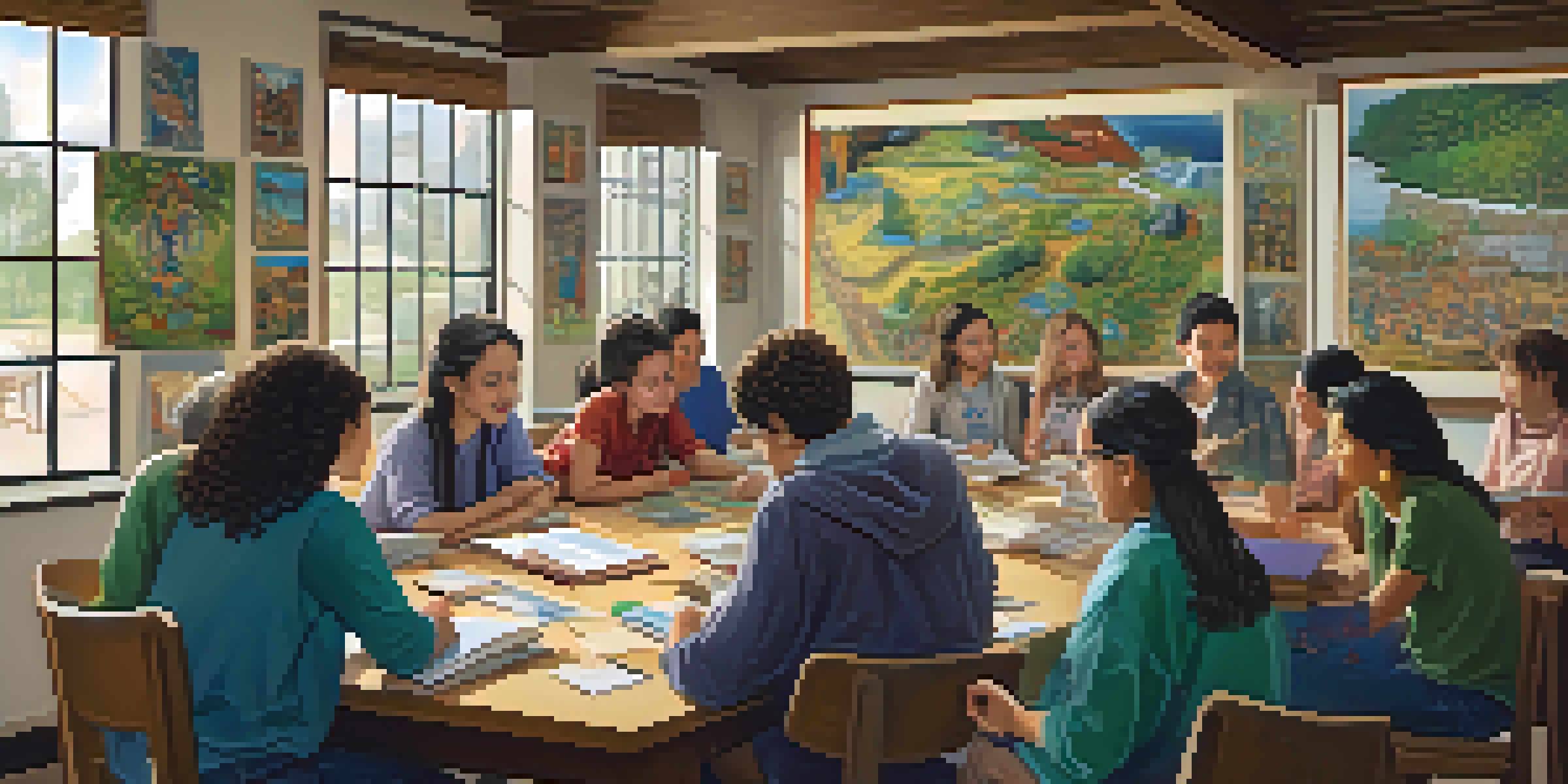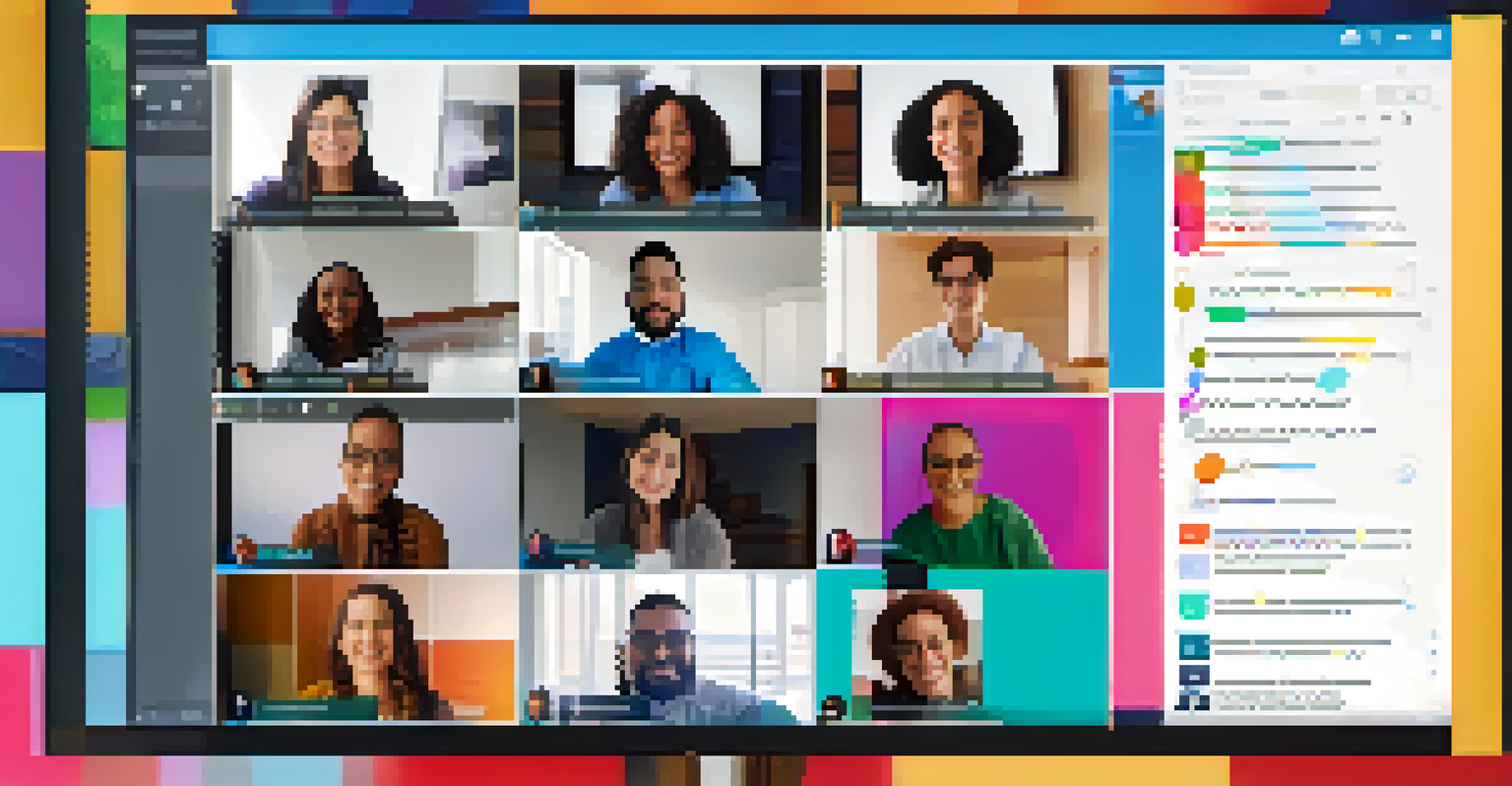The Role of Critical Thinking in Adult Learning

Understanding Critical Thinking and Its Importance
Critical thinking is the ability to analyze, evaluate, and synthesize information effectively. In adult learning, this skill is essential as it empowers learners to make informed decisions and solve complex problems. By honing critical thinking, adults can navigate the vast amount of information available today and discern what is relevant to their learning.
Critical thinking is the key to creativity and innovation.
Moreover, critical thinking fosters independence in learners. Instead of passively absorbing information, adults are encouraged to question assumptions and challenge existing beliefs. This active engagement not only enhances retention but also makes learning more meaningful and applicable to real-life situations.
Ultimately, critical thinking is a cornerstone of lifelong learning. It equips individuals with the tools necessary to adapt to changing environments, whether in their careers or personal lives. As such, emphasizing this skill in adult education programs is vital for developing informed and capable individuals.
The Role of Experience in Adult Learning
Adults bring a wealth of life experiences to the learning environment, which can significantly enhance the learning process. These experiences serve as a foundation upon which new knowledge can be built. When learners can connect new concepts to their past experiences, they are more likely to understand and retain that information.

Additionally, adult learners often have specific goals and motivations that drive their education. This focus on practical application of knowledge is where critical thinking plays a crucial role. By analyzing their experiences and integrating new information, learners can create actionable strategies that align with their personal or professional objectives.
Critical Thinking in Adult Learning
Critical thinking empowers adult learners to analyze information, make informed decisions, and solve complex problems effectively.
Therefore, recognizing the importance of experiential learning can elevate the effectiveness of adult education. This approach not only respects the vast knowledge that adult learners already possess but also encourages them to engage critically with new ideas, resulting in a richer learning experience.
Encouraging a Critical Thinking Mindset
Creating a learning environment that promotes critical thinking requires intentional strategies. Educators can encourage open discussions where learners feel safe to express their thoughts and challenge each other’s viewpoints. This collaborative approach fosters a culture of inquiry, essential for developing critical thinking skills.
The greatest weapon against stress is our ability to choose one thought over another.
Moreover, incorporating problem-based learning activities can stimulate critical thinking. For instance, presenting real-world scenarios for learners to analyze and solve can ignite their analytical skills. Such practical applications not only make learning relevant but also encourage learners to think outside the box.
Lastly, providing constructive feedback is key to nurturing a critical thinking mindset. By guiding learners through their thought processes and encouraging reflection, educators can help them refine their critical thinking abilities. This ongoing dialogue between learners and instructors enriches the educational experience and promotes deeper understanding.
The Connection Between Critical Thinking and Problem Solving
Critical thinking and problem-solving go hand in hand, especially in adult learning. When faced with challenges, adults must assess the situation, weigh options, and choose the best course of action. This process is deeply rooted in critical thinking as it requires careful analysis and evaluation of potential solutions.
For instance, in a workplace training session, adults might be presented with a case study that outlines a specific problem. By employing critical thinking skills, they can dissect the issue, identify contributing factors, and brainstorm viable solutions. This practical application reinforces the importance of critical thinking in everyday problem-solving scenarios.
Experience Enhances Learning
Adults' life experiences serve as a crucial foundation for connecting new knowledge, making learning more meaningful and applicable.
Ultimately, enhancing critical thinking skills leads to more effective problem-solving abilities. As adults learn to approach issues thoughtfully and creatively, they become better equipped to tackle both personal and professional challenges.
The Impact of Technology on Adult Learning
Technology has transformed the landscape of adult learning by providing access to a vast array of resources and tools. Online platforms and digital content have made it easier for learners to engage with materials that promote critical thinking. This accessibility allows adults to learn at their own pace and explore topics that interest them deeply.
Furthermore, technology encourages collaboration among learners. Online discussion forums and video conferencing tools enable adults to share insights and challenge each other's ideas, fostering a rich dialogue that sharpens critical thinking. By interacting with diverse perspectives, learners can broaden their understanding and refine their thought processes.
However, it’s important to navigate technology mindfully. With the abundance of information available online, critical thinking becomes crucial in discerning credible sources from unreliable ones. Educators play a significant role in equipping learners with the skills to evaluate digital content, reinforcing the importance of critical thinking in the age of information overload.
Assessing Critical Thinking in Adult Learners
Assessing critical thinking skills in adult learners can be challenging but is essential for measuring educational effectiveness. Traditional testing methods may not fully capture a learner's ability to think critically. Instead, educators might consider alternative assessment strategies, such as reflective essays, group discussions, or project-based evaluations.
For instance, a capstone project that requires learners to analyze a real-world issue and propose solutions can effectively showcase their critical thinking skills. This type of assessment encourages deeper engagement and allows learners to demonstrate their abilities in a practical context. It also provides an opportunity for feedback and self-reflection, further enhancing the learning experience.
Technology's Role in Education
Technology facilitates access to resources and fosters collaboration, which enhances critical thinking skills among adult learners.
By adopting varied assessment methods, educators can better gauge the critical thinking capabilities of their adult learners. This comprehensive approach not only supports learner development but also informs instructional strategies, ensuring the continued effectiveness of adult education programs.
The Future of Critical Thinking in Adult Education
As society continues to evolve, the importance of critical thinking in adult education will only grow. The ability to analyze information critically is crucial in a world filled with misinformation and rapidly changing circumstances. Therefore, adult education programs must prioritize the development of these skills to prepare learners for future challenges.
Moreover, the integration of interdisciplinary approaches can further enhance critical thinking in adult learning. By drawing connections between different fields of study, learners can develop a more holistic understanding of complex issues. This interconnectedness not only fosters critical thinking but also encourages creativity and innovation.

In conclusion, critical thinking will remain a vital component of adult education. By cultivating this skill, educators can empower learners to become informed, adaptive, and proactive individuals who can navigate the complexities of modern life.